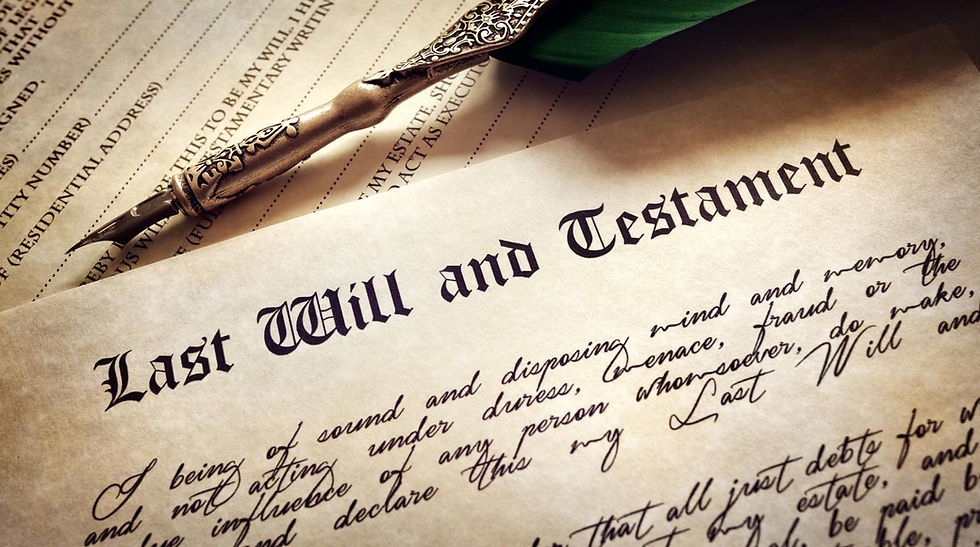Who Has to Be Notified When an Estate is Opened?
- Nicole Malcolm
- Jul 3, 2025
- 2 min read
Updated: Aug 21, 2025

If you are named as an executor in a loved one’s Will, your first important step is to open the estate. Opening an estate requires the original Will and original death certificate. The estate is opened by filing a petition and taking the oath of personal representative. After the estate is opened, there are very important deadlines and timelines to meet. The first important requirement is to send notice of the estate to the beneficiaries and file proof of notice with the Register of Wills.
In Pennsylvania, the individuals entitled to receive notice depends on whether there is a Will. If there is a Will, the law requires executors to notify all the beneficiaries named in the Will, the decedent’s spouse and children, and the attorney general for any charitable bequests over $25,000. If there is no Will, then the intestate heirs receive the notice.
Serving notice of an estate to the beneficiaries or heirs may seem like a simple technical requirement. But the notice is designed to protect the rights of beneficiaries and family members. For example, it is not possible to fully disinherit a spouse in a Will. The spouse always has the right to take the “spousal elective share” (1/3 of the estate) unless grounds for divorce have been established in a pending divorce action. The notice requirement for children protects their rights by providing a fair opportunity to contest a Will that may disinherit them. Otherwise, the executor could establish the estate and disburse the assets before the children discover what occurred. If the notice is not sent, the personal representative can be held responsible to those whose rights were negatively affected.
Failing to meet even simple technical requirements can land an executor in financial trouble. Some executors treat these requirements as if they don’t matter. But flouting legal requirements often results in financial pain. While our firm has assisted executors who started probate on the wrong track, it is best to turn to a probate attorney early in the process.
Article Courtesy of Michael Daiello, Esquire





Comments